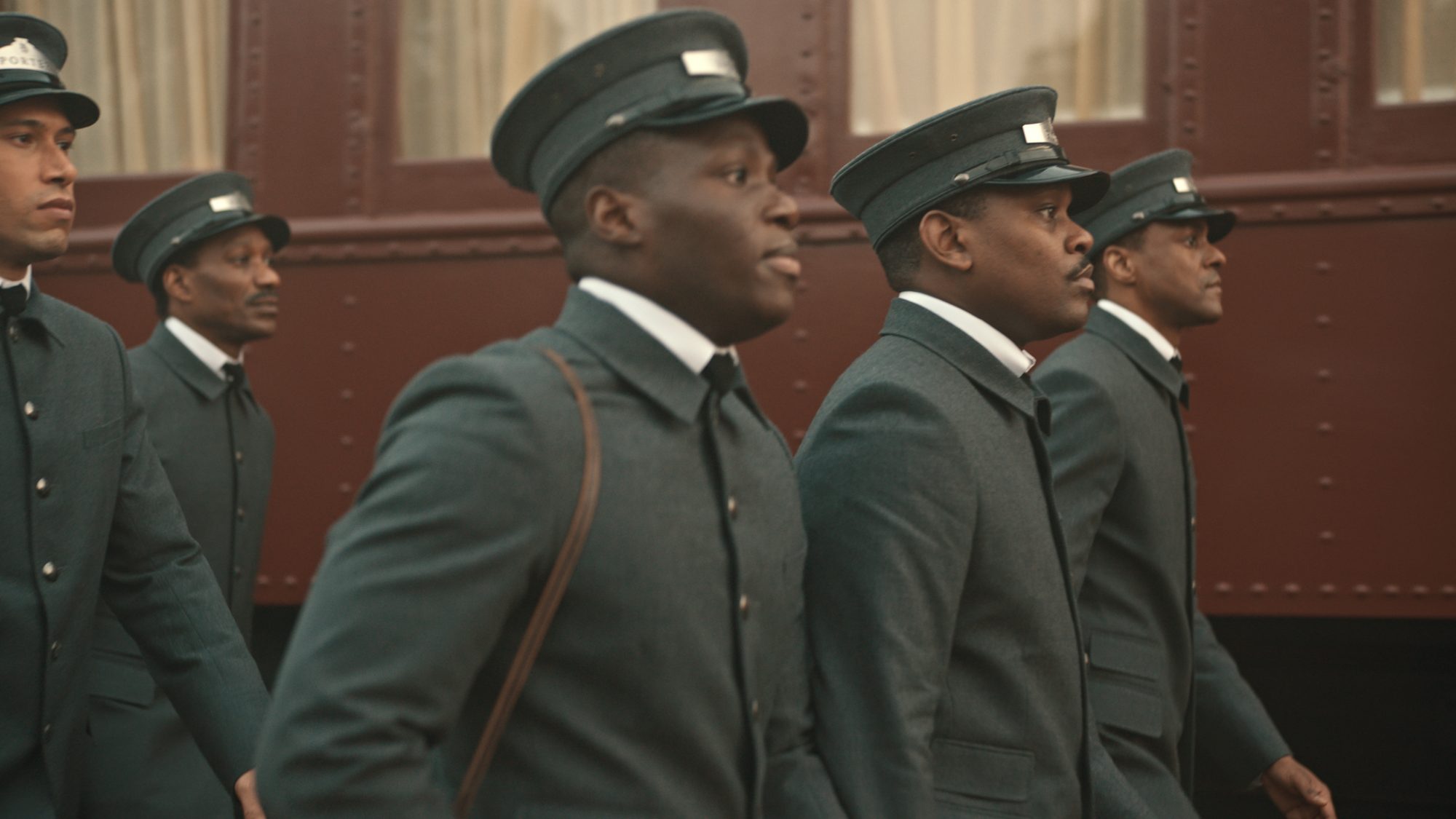Violet King’s name echoes in Alberta history. In the early 1950s, after graduating from the University of Alberta’s law school, she became the first Black woman in this province’s history to pass the bar. She moved to the United States in the 1960s, famous for working as an executive for the YWCA and advancing civil rights causes.
King’s father was a sleeping car porter — one of many Black Canadians who found work on the trains that whisked wealthy passengers across the country. And King’s career was supported by the International Brotherhood of Sleeping Car Porters — a union that, in Edmonton, was officially recognized in 1946.
And this little snippet of history is just one reason that The Porter promises to be not only an entertaining, but illuminating, television event. Created by Arnold Pinnock, the miniseries, which begins on CBC on Feb. 21, takes us back to an era when train travel was decked in luxury. And it shows how it was maintained by poorly paid, mistreated Black workers. Many Black neighbourhoods in Canada were formed close to rail stations in our major cities.
While the show is based in the Montreal Black railway community of St. Antoine, Pinnock feels that the story will resonate with viewers across the country.
I wanted to showcase that we are all part of this Canadiana,” he says. “And, collectively, these men and these women are weaved into the very fabric of this country, of our flag.”
And the idea for the show didn’t come from one place. As a stage performer, Pinnock travelled across the country. And, he enjoyed visiting museums wherever he went, looking for any shreds or hints of Black history. (Ironically, a lot of museums in Canada can be found in old, repurposed railway stations.) And, he noticed the role the railway played in Black history, no matter if he was in Ontario or Quebec, Alberta or British Columbia.
“What I loved to do was to go to museums,” he says. “Every little town. And I’d look around to see if there were any Black people, or I’d go around to the local public library to read about Black people. And the one common denominator that kept coming up was the porters. Back then, I knew nothing about porters. And, then, I thought porters were just an American thing. I didn’t realize it was a Canadian thing. And that’s what empowered me to dig deeper and deeper.
